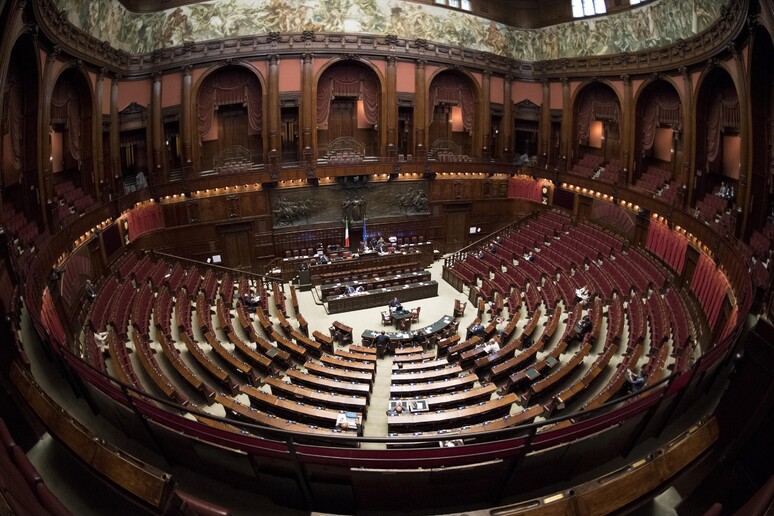The Lower House must change a bill against torture to bring it into line with international standards, Council of Europe (CoE) Human Rights Commissioner Nils Miuznieks said in a letter to parliamentary Speakers Laura Boldrini (House) and Pietro Grasso (Senate) Wednesday. Miuznieks voiced concern about the "profound differences" between the definition of torture ion the bill and that contained in various international treaties ratified by Italy, especially the UN's Convention against Torture.
The Senate approved the controversial bill introducing the crime of torture last month.
Italy is required to introduce the crime of torture under the terms of the 1984 UN Convention against Torture and Other Cruel, Inhuman or Degrading Treatment, which was ratified by the Italian parliament in 1988.
In March the CoE urged Italy to swiftly introduce the crimes of torture and degrading treatment, ensuring they are properly sanctioned and culprits can no longer get off.
Voicing "concern", the CoE's council of ministers said measures taken by Italy to comply with an April 2015 European Court of Human Rights (ECHR) ruling on the infamous police night raid on sleeping quarters of demonstrators at the 2001 Group of Eight summit were "insufficient".
Politicians and activists urged the government to act.
"It's scandalous that Italy should obstruct all international bodies and it's scandalous that our country does not envisage that torture, a crime against humanity, is a crime," said Patrizio Gonnella, chair of the prisoners' rights group Antigone.
On April 7, 2015 the ECHR condemned Italy and called for legislative changes after "torture" during a police raid in July 2001 on anti-globalization protestors camping out at the Diaz school during the Genoa G8 summit.
The court condemned Italy not only for what happened to the demonstrators, but also because it said the country lacks appropriate legislation to punish the crime of torture even though it ratified a UN convention on torture in 1988.
The government said in response that an anti-torture bill mandating sentences of up to 12 years now before the Lower House would be sped up.
The Diaz raid is perhaps Italy's most notorious case of police brutality. In the night assault on the Diaz school, hundreds of police attacked about 100 activists and a few journalists, wounding 82 and seriously injuring 61 - three critically and one, British journalist Mark Covell, left in a coma with rib and spinal injuries. Officers planted evidence including two Molotov cocktails and hammers and knives from a nearby construction site to justify the raid.
Amnesty International called the event "the most serious suspension of democratic rights in a Western country since the Second World War".
In its ruling in April 2015, the ECHR upheld a complaint from a 62-year-old Italian, Arnaldo Cestaro, who was brutally beaten that night and still suffers from the injuries he sustained.
It noted that none of the officers who actually inflicted the beatings are serving jail time because of the statute of limitations, and urged Italy to rectify this.
In reaction after that sentence, ruling Democratic Party (PD) chair Matteo Orfini said it is "shameful" that Gianni De Gennaro was now president of State-controlled defence giant Finmeccanica, recently renamed Leonardo, because he was national police chief during the scandal-hit Genoa G8 summit.
De Gennaro, appointed head of Finmeccanica in July 2013, ordered the raid on demonstrators but was not punished by the courts.
He was the only ranking officer to escape nominal punishment.
ALL RIGHTS RESERVED © Copyright ANSA











